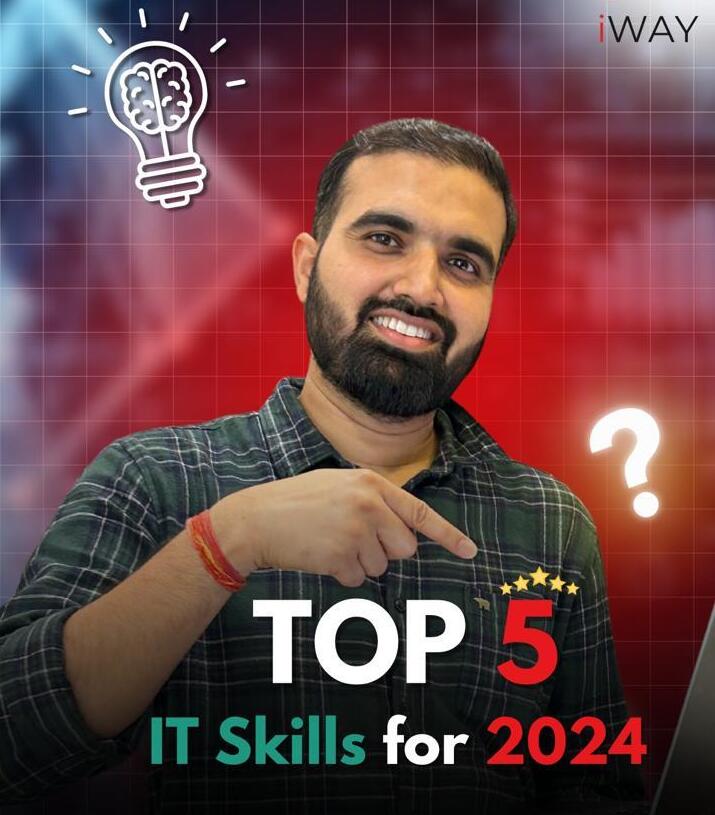Tech Interview Edge: Your Dedicated Path to Interview Success
in Tech Interview EdgeWhat you will learn?
Module 1: Core OOP Concepts
Module 2: Data Structures and Algorithms
Module 3: Database Management System (DBMS)
Module 4: Live Projects
Module 5: AI Prompt Engineering
Module 6: Cloud Computing & DevOps
Module 7: Mock Interviews
Module 8: Meet & Greet
Module 9: Career Services
About this course
This IT interview preparation course provides a comprehensive toolkit for aspiring tech professionals. It covers core programming concepts like Object-Oriented Programming (OOPs) and Data Structures and Algorithms (DSA), along with practical database skills using SQL. The curriculum extends to modern technologies, including Cloud Computing & DevOps and the increasingly relevant field of AI Prompt Engineering. Dedicated modules focus on Project Interview Preparation and Mock Interviews to hone interview skills. Participants gain real-world experience through two capstone projects and receive career support with 25+ resume templates. Upon completion, participants receive a certificate of completion, validating their skills and enhancing their job prospects.
Durations: 40 hours
Benefits of Participation:
- Technical Skills: OOPs, DSA, SQL, Cloud Computing & DevOps, AI Prompt Engineering
- Interview Prep: Project Interview Preparation, Mock Interviews
- Practical Experience: Two Capstone Projects (worth INR 16000)
- Career Services: 25+ Resume Templates
- Certification: Certificate of Completion
FAQ
Comments (0)
1. Classes & Objects.
2. Encapsulation.
3. Inheritance.
4. Constructors.
1. Polymorphism.
2. Interfaces.
3. Abstraction.
1. Arrays.
2. String.
3. List.
4. Dictionary.
1. Queue.
2. Stack.
3. Linked List.
4. Space & Time Complexity.
1. Recursive Functions.
2. Searching Algorithms.
3. Linear Search.
4. Binary Search.
1. Sorting Algorithms.
2. Bubble Sort.
3. Selection Sort.
1. Sorting Algorithms.
2. Insertion Sort.
3. Quick Sort.
1. What is a database?
2. Define a database and its components. (tables,
records, fields)
3. Explain the role of a DBMS. (Database Management
System)
4. Introduction to SQL.
5. Data types in SQL.
6. Creating tables.
7. Inserting data.
8. Updating data.
9. Deleting data.
10. Filtering data.
1. Sorting data.
2. Grouping data.
3. Joins.
4. Subqueries.
5. Indexes.
6. Performance tuning.
7. Stored procedures.
8. Functions.
1. Transactions.
2. ACID properties.
3. Database design principles.
4. Entity-relationship (ER) diagrams.
5. Normalization. (1NF, 2NF, 3NF)
6. Normalization techniques.
7. Identifying functional dependencies.
8. Eliminating anomalies.
1. Database security.
2. Database backup.
3. Practice exercises.
4. Question and answer Class.
5. Addressing learners' questions and
concerns.
1. Provide a brief overview of the project's goals, objectives, and the
problem it aims to solve.
2. Highlight key features and the project's impact or outcome.
1. Clearly state your role in the project, focusing on specific tasks or
modules you were responsible for.
2. Emphasize contributions like coding, testing, or deployment.
1. Mention the technologies, frameworks, and tools used in the project.
explain why you chose.
2. This tech stack and how it contributed to the project’s efficiency and
scalability.
1. Describe how you applied Object-Oriented Programming principles
(Encapsulation, Abstraction, Inheritance, Polymorphism) in your
project, and how it improved code structure and reusability.
1. What is Cloud Computing?
2. Types of Clouds.
3. Cloud Computing Models – SaaS / PaaS / IaaS.
4. Data Centers and Availability Zones.
5. Overview of a Cloud Platform. (Microsoft Azure)
6. Exploring Various Cloud Resources.
1. What is DevOps?
2. Azure DevOps Walkthrough.
3. Continuous Integration.
4. Continuous Deployment.
1. AI and its Applications.
2. Machine Learning Concepts.
3. Difference Between Machine Learning and AI.
1. Generative AI, LLM, and Prompt Engineering.
2. Natural Language Processing.
3. AI-Based Hands-on Project.
1. Learn how to handle real-world interview scenarios thru
practice sessions with tech leads and hiring managers from
top-tier organizations.
1. Learn how to effectively greet the interviewers and establish
the first impression.
1. Learn how to present yourself professionally, including
mastering body language, attire, and clear communication to
make a strong first impression.
1. We will train you to answer complex technical questions
confidently, emphasizing problem-solving and practical
knowledge application.
1. Learn how to respond to behavioral questions using the STAR
method, showcasing your interpersonal.
1. Learn how to create a professional, well-structured resume that
highlights your skills, achievements, and experience to stand out to
employers.
1. Learn how to optimize your LinkedIn profile, including building a
strong professional brand.
2. Showcasing your skills, and networking effectively with industry
professionals.
1. iWAY Trainings will provide personalized guidance on job search s
strategies, company targeting, and interview preparation.
2. Our placement partner consultancies and companies will give first
preference to our students, increasing your chances of securing job
opportunities with top organizations.









